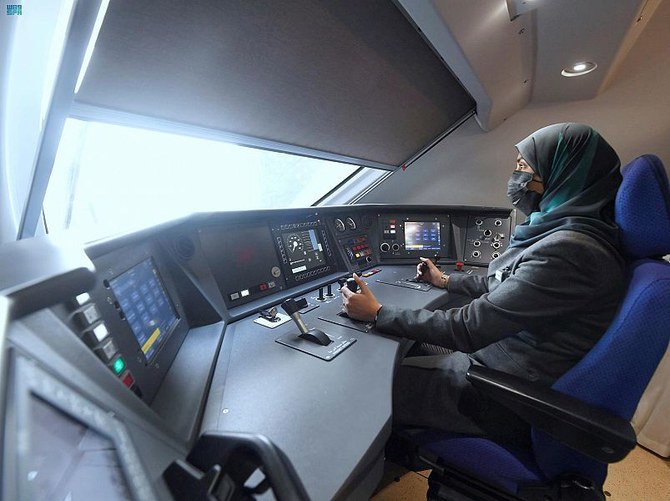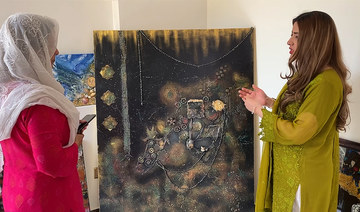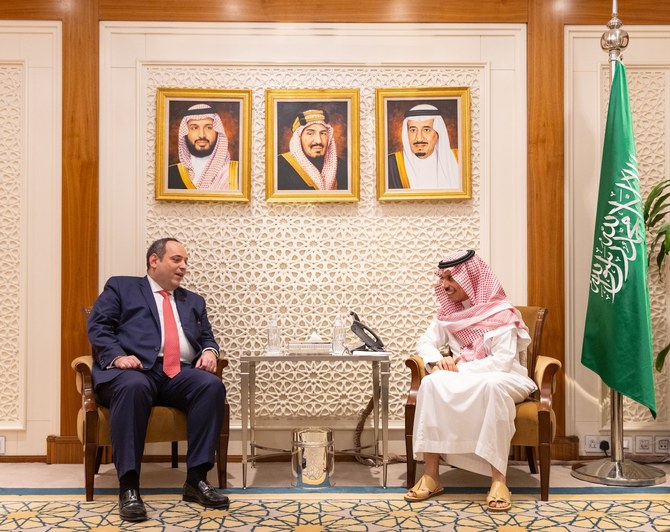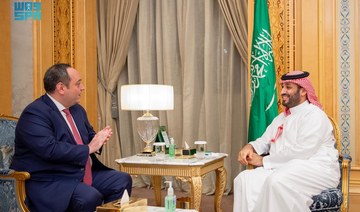JEDDAH: Ayah Abdulrahman Taher, 28, from Makkah, is one of 34 female train drivers who recently began working on the Haramain high-speed railway between Saudi Arabia’s holy cities of Makkah and Madinah.
Her success in this traditionally male-dominated industry is indicative of the massive social transformation underway in the Kingdom, thanks to reforms implemented since 2016 as part of Saudi Vision 2030.
Taher studied English literature at university but jumped at the opportunity to begin an exciting career with the Kingdom’s railways when she learned of a new, year-long training scheme.
“I never thought this would be a profession I would do, but when the opportunity came, I wanted to be one of the first women in Saudi Arabia to drive a train,” Taher told Arab News.
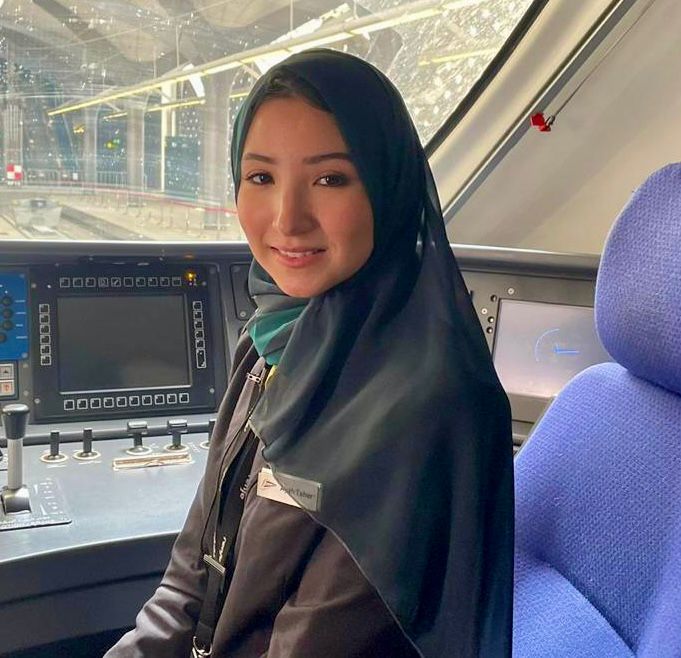
Ayah Abdulrahman Taher, 28, is one of 34 female train drivers who recently began working on the Haramain high-speed railway between Makkah and Madinah. (Supplied)
More than 28,000 women applied for the limited number of roles when they were first announced in January 2022. Of these, 14,000 completed the first phase of the selection process and underwent an on-site examination at the Saudi Railway Polytechnic in Qassim.
“It feels wonderful to be driving the train but also a big responsibility for us,” said Taher. “Despite the responsibilities of driving a train full of people, we see how proud people are of us and this makes us proud too.”
The Haramain railway, which began service in October 2018, shuttles pilgrims and visitors to the Grand Mosque of Makkah.
The women’s training program, which commenced in March 2022, includes 1,157 hours of theoretical and practical modules covering everything from technical issues and traffic control to health and safety regulations.
Practical training involves 674 hours of driving monitored by supervisors from Renfe KSA, one of the companies operating the high-speed train project. Out of the 34 recruits, six were already part of Renfe, working in station services or as onboard personnel.
The recruitment initiative takes Renfe KSA’s staff of drivers to 140 — almost a quarter of them women. The average age is 26.8 and 73 percent hold a university degree.
Saudi women were granted the right to drive in 2018 following a 30-year prohibition. Today, tens of thousands of Saudi women are driving a wide range of vehicles, from cars to airplanes.
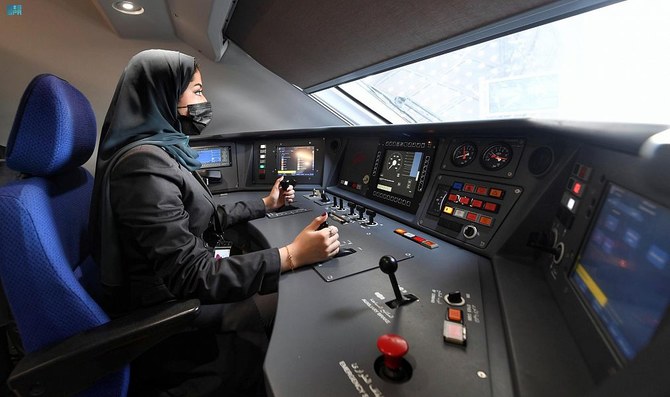
32 females have been qualified from the Haramain Express Train Leaders Program by the Saudi Railway Company. (SPA)
In May 2022, the low-cost Saudi airline Flyadeal announced the first domestic flight in the Kingdom with a crew made up entirely of women, including co-pilot Yara Jan, aged just 24, making her Saudi Arabia’s youngest female pilot.
Although restrictions on women’s participation in government and key leadership positions began to be lifted under King Abdullah, it was only after Crown Prince Mohammed bin Salman launched Vision 2030 that the female labor force began to flourish.
Saudi women now make up 37 percent of the Kingdom’s workforce, according to Ahmed Al-Rajhi, the Saudi minister of human resources and social development. In 2016, this figure stood at 17.7 percent.
About 2.2 million Saudis are now employed in the private sector — the highest number in the country’s history.
Saudi women have made unprecedented progress in the labor market, particularly since reforms were passed in 2019 allowing women to work in previously male-dominated industries.
The Kingdom has relaxed dress codes, legislated against workplace gender discrimination and harassment, encouraged women to pursue higher education, and appointed women as ambassadors, CEOs, and to top government positions.
According to the World Bank, other reforms include equalized right to choose a place of residency, the prohibition of discrimination based on gender in employment and in accessing credit, and the prohibition of the dismissal of pregnant women.
Additionally, new decrees have introduced pension equality by equalizing the retirement ages for men and women and mandating pension care credits for maternity leave.
With an increasing number of Saudi women in employment, social norms, particularly surrounding family life, are having to adapt.
“There is a shift now in Saudi society where women have gone from being primary caregivers at home or housewives, which are very important jobs, to taking on responsibilities outside of the home within the Kingdom’s workforce,” Norah Al-Yusuf, senior adviser at Vision 2030’s Quality of Life Program Center, told Arab News.
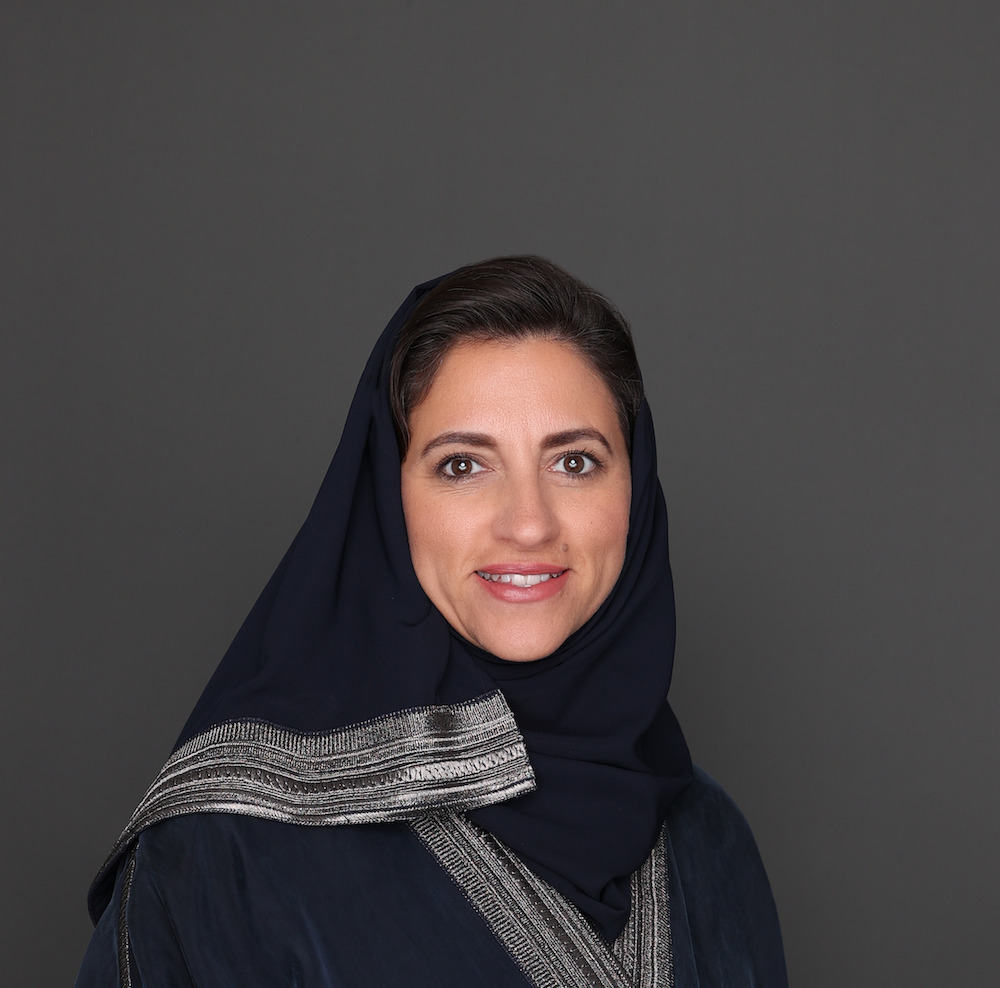
Norah Al-Yusuf, senior adviser at Vision 2030’s Quality of Life Program Center. (Supplied)
“More Saudi women in the workforce is contributing to the growth of the country economically and allowing women to be financially independent. But on the other side, one must look at the social norms that are changing as a result. For instance, women rely more on childcare services if they want to have families.”
The Middle East and North Africa region has seen a fall in birth rates over the last five to 10 years. According to the UN, the birth rate in Saudi Arabia in 2022 was 16.166 births per 1,000 people.
This represented a 2.8 percent decline from 2021, when there were 16.631 births per 1,000 people, and a 2.73 percent decline from 2020 when there were 17.097 births per 1,000 people.
“How are these numbers going to affect the long-term curve of society and the demographic, particularly given the fact that a large percentage of the Saudi population is young, within the ages of 15 to 24?” said Al-Yusuf.
To be sure, Saudi Arabia, like many of the world’s most developed economies, is still a long way off achieving full gender parity in the workplace and in other facets of public life.
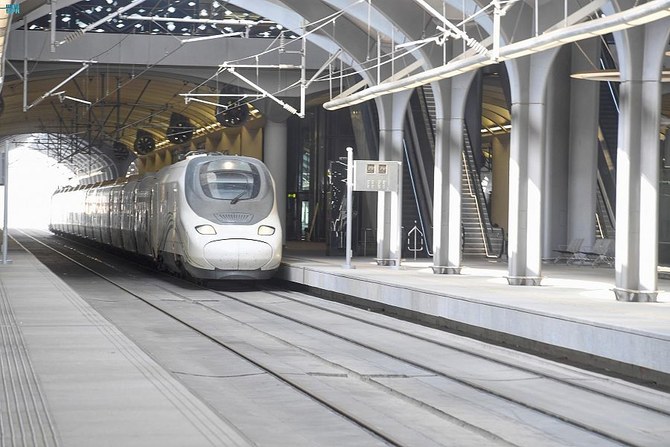
32 females have been qualified from the Haramain Express Train Leaders Program by the Saudi Railway Company. (SPA)
Nevertheless, Al-Yusuf says the Kingdom is working to provide women with the support they need to achieve a work-life balance and help them to realize their full potential.
“Women across the world, not just in Saudi Arabia, are still faced with the challenge of how to balance both their personal and family life and what is expected of them in their careers,” she said.
“In Saudi Arabia where change is happening at an exponential rate, support and mentorship is crucial for women during this vital moment when they are provided with numerous opportunities to thrive outside of the home.”
Although she owes her career on the Saudi rail network to these transformative reforms and professional development schemes, Taher says acceptance among family and the wider community has been an essential ingredient to her success.
“I received a lot of support from my family to become a train driver,” said Taher. “It hasn’t affected me negatively. I received much love and encouragement from my friends and family. They are all proud.”



